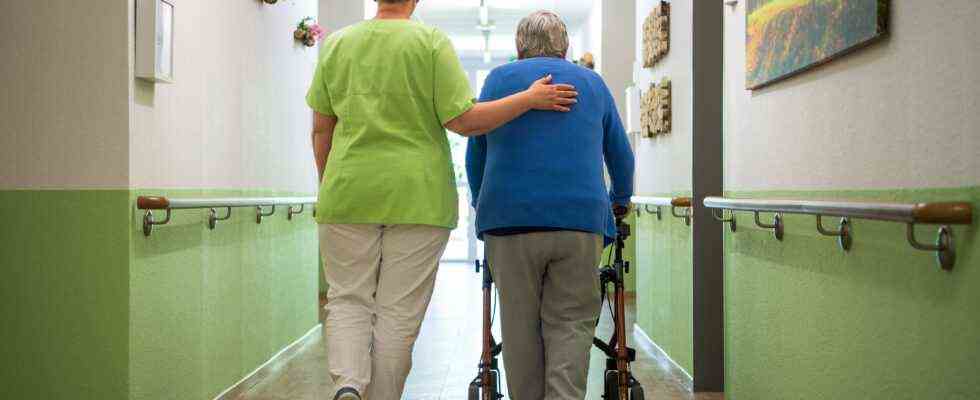Status: 11/29/2021 2:58 p.m.
It is a step in the right direction, say the charities about the traffic light’s plans in the social and health sector. But they also emphasize: In the end, it depends on the exact implementation.
The large welfare associations in Germany have largely expressed their satisfaction with the plans of the SPD, Greens and FDP in the social and health sector. The coalition agreement contained ambitious steps towards a more just and sustainable society, said Diakonie President Ulrich Lilie, who is currently also President of the Federal Association of Independent Welfare Care.
The will for a fair generation contract is evident, he said. Representatives of the working group particularly welcomed plans for improvements in care, a citizen’s benefit instead of Hartz IV and a basic child benefit. At the same time, the representatives emphasized that the concrete implementation would be closely monitored. That’s what matters in the end.
Nursing emergency worsened massively
Lily made particular reference to the challenges in nursing. The care emergency has worsened again massively by the pandemic. He welcomed the fact that the Ampel-Coalition wants to limit the co-payments for inpatient care and improve the personnel key. The average share for a nursing home place is “an unbelievable 2,215 euros a month,” said Lilie. The traffic light coalition, which is likely to provide the coming federal government, wants to limit these own contributions.
The Diakonie President welcomed the care bonus, for which the traffic light wants to provide one billion euros, as a sign of recognition. “In addition to gestures, we need thick board drills,” he added, referring to the recruitment of skilled workers and their working conditions.
Praise for basic child security
The chairman of the AWO, Jens Schubert, praised the plan to bundle the services for children and to introduce a basic child benefit in order to tackle child poverty. It is shameful that every fifth child in Germany grows up in poverty, said Schubert, who is the vice-president of the Federal Association of Independent Welfare Care.
His own association has already submitted a proposal. The AWO advocates basic child security, which is between 330 and 695 euros, depending on the income of the parents. The SPD, Greens and FDP do not mention any amount in the coalition agreement. You want a basic child benefit that is calculated from a parent-independent guarantee amount and an income-related additional contribution.
Associations remain “reliable partners”
The President of the German Red Cross, Gerda Hasselfeldt, emphasized that the welfare associations would remain “reliable partners” for the new federal government, but also demanded security for the organizations. The donations of 20 million euros for the associations are only guaranteed until 2022. They have to be stabilized and adjusted, she said. In addition, Hasselfeldt demanded priority for non-profit providers in the social sector over private ones, who had an advantage in the formation of reserves or borrowing.
Skilled labor shortage “urgent task”
Hasselfeld described the elimination of the shortage of skilled workers as an “urgent task” for the new government – and not just in nursing. “A comprehensive strategy for skilled workers is required for the entire health and social sector,” she demanded. An “attractiveness campaign” is needed to win people over to social professions and voluntary social positions.
Lilie also referred to the changes that were necessary on several levels in order to remedy the shortage of skilled workers. In the “Ampel” coalition agreement there are “some hopeful approaches” in this context, for example in migration and immigration policy. This is important in order to be able to attract specialists at all. “We are still short of 100,000 nurses,” reminded the Diakonie boss.
Diakonie, Caritas, AWO, DRK, the Paritätische Gesamtverband and the Central Welfare Office of Jews in Germany belong to the Federal Working Group of Free Welfare Care.

